News
 Dr Florian Koller Awarded Marie Skłodowska-Curie Fellowship to work in the QMUL Astronomy Unit
Dr Florian Koller Awarded Marie Skłodowska-Curie Fellowship to work in the QMUL Astronomy Unit
30 May 2025
 A vast molecular cloud, long invisible, is discovered near the solar system
A vast molecular cloud, long invisible, is discovered near the solar system
28 April 2025
An international team, including members from the QMUL Astronomy Unit, uncovers a hidden celestial structure using innovative far-ultraviolet techniques.
 Paul Shepherd wins Drapers Company Postgraduate Prize
Paul Shepherd wins Drapers Company Postgraduate Prize
3 February 2025
Paul Shepherd has won one of QMUL’s Drapers Company Postgraduate Prizes, for his outstanding postgraduate performance during his Astrophysics MSc.
 New study furthers our understanding about the origins of energetic cosmic particles in the universe
New study furthers our understanding about the origins of energetic cosmic particles in the universe
13 January 2025
A new study, published today in Nature Communications by a team including members from the QMUL Astronomy Unit, has shed new light on how shock waves throughout the Universe can accelerate electrons to high energies.
 The large scale galaxy distribution is not as symmetric as we thought
The large scale galaxy distribution is not as symmetric as we thought
25 September 2024
Astronomy Unit PhD Student Pritha Paul has led a study, published in Physical Review Letters, showing that large scale galaxy distribution is not as symmetric as we thought.
 Astronomy and Chemistry Shine in 2024 National Students Survey Results
Astronomy and Chemistry Shine in 2024 National Students Survey Results
19 July 2024
The recently released 2024 National Students Survey (NSS) results have highlighted significant achievements in Astronomy and Chemistry, marking a milestone for the Faculty and contributing positively towards our TEF2027 objectives. These encouraging outcomes underscore our ongoing commitment to delivering a student experience rated as Gold.
 Jesse Coburn Wins RAS Keith Runcorn Thesis Prize
Jesse Coburn Wins RAS Keith Runcorn Thesis Prize
1 July 2024
Jesse Coburn, a former PhD student at Queen Mary University of London, has been awarded the Royal Astronomical Society's Keith Runcorn Thesis Prize for his doctoral work, which was carried out in QMUL's Astronomy Unit.
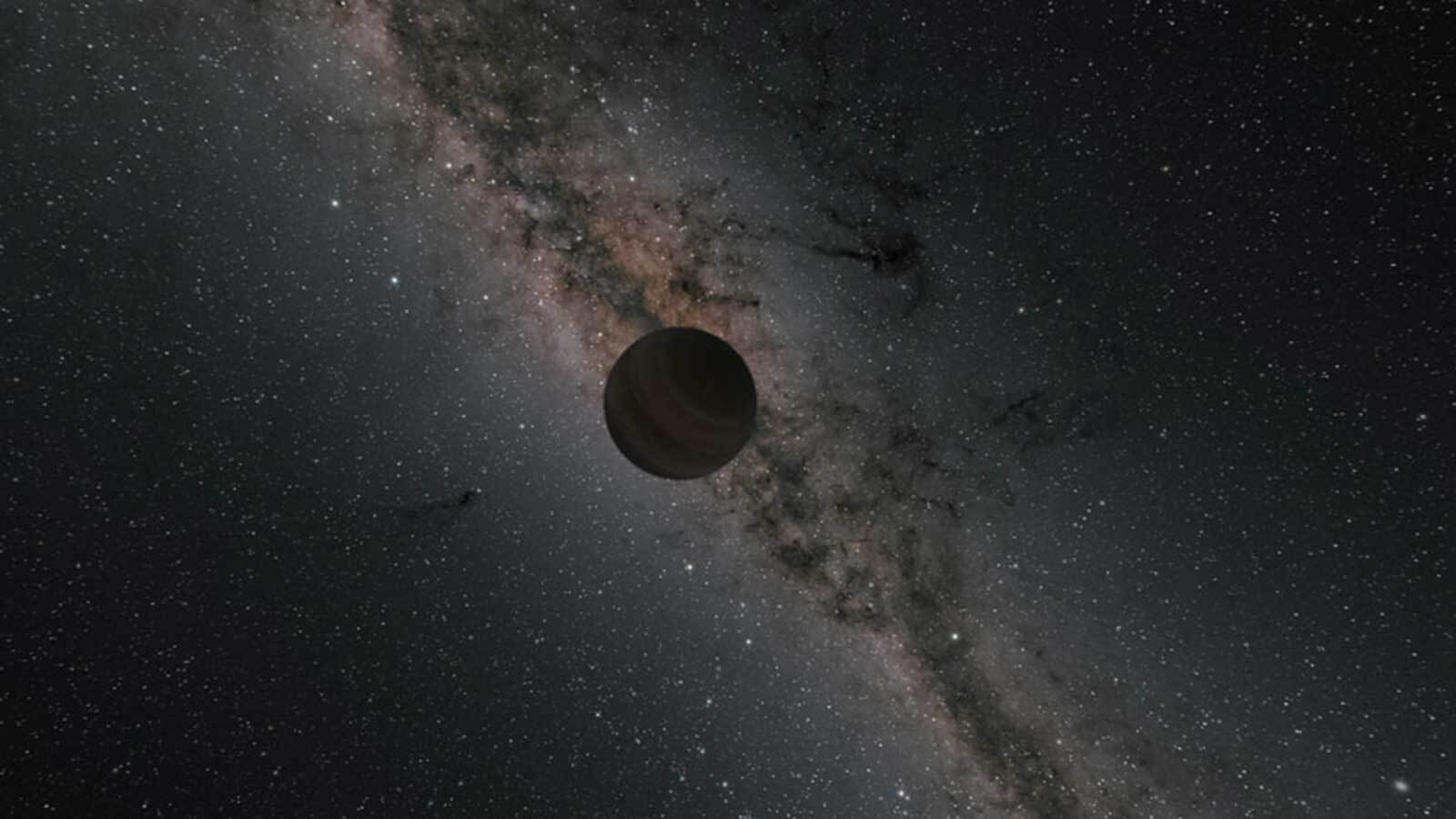 Where are all these rogue planets coming from?
Where are all these rogue planets coming from?
1 April 2024
What are rogue planets and how did they come into existence? This article cites research in a new paper by Dr Gavin Coleman in the Monthly Notices of the Royal Astronomical Society.
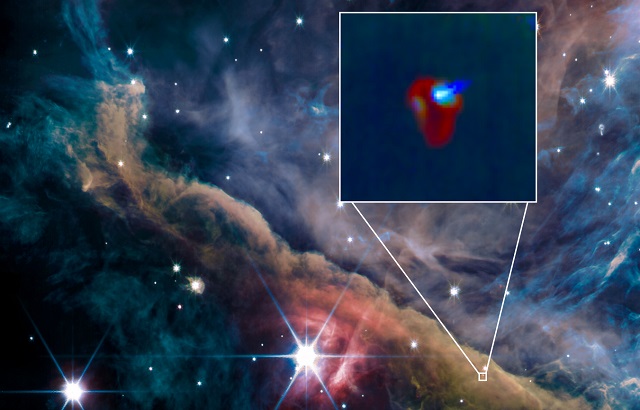 Radiation from massive stars shapes planetary systems
Radiation from massive stars shapes planetary systems
29 February 2024
Astronomy unit members are part of a team that has discovered a unique planetary system where a young star is being stripped bare of its planet-forming material at an astonishing rate
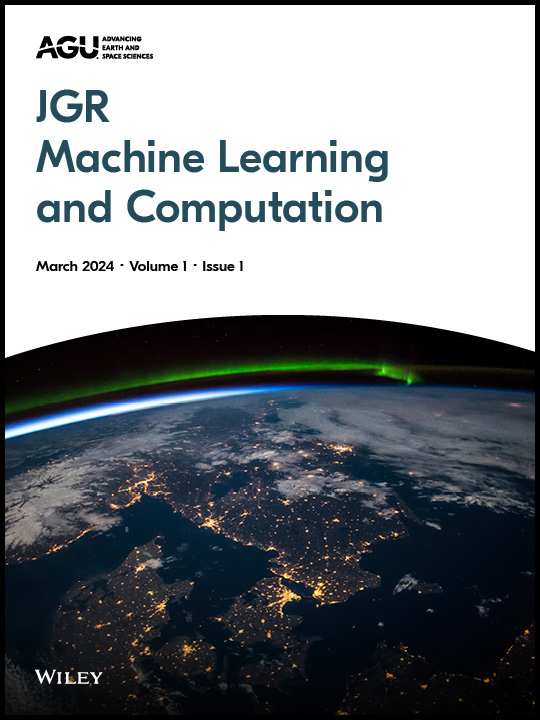 New research journal launched by Astronomy Unit member
New research journal launched by Astronomy Unit member
8 December 2023
Dr Enrico Camporeale, Senior Lecturer in Queen Mary’s Astronomy Unit, has become the founding editor-in-chief of the new journal, Journal of Geophysical Research (JGR): Machine Learning and Computation
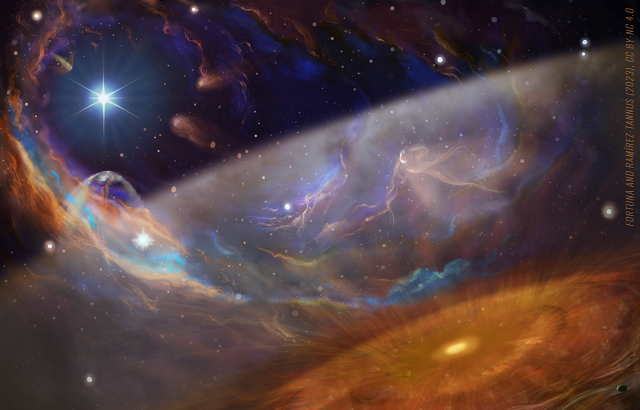 New James Webb Space Telescope observations reveal potential for earth-like planets in harsh environments
New James Webb Space Telescope observations reveal potential for earth-like planets in harsh environments
30 November 2023
A new study published in the Astrophysical Journal Letters suggests that planets like Earth, including those with water, could form even in the harshest known star-forming environments. These environments, drenched in intense ultraviolet radiation from massive stars, were previously thought to be too hostile for planet formation.
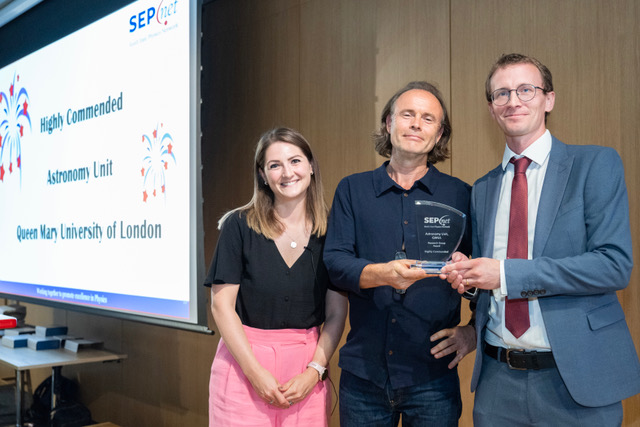 Astronomy Unit win SEPnet award for public engagement
Astronomy Unit win SEPnet award for public engagement
28 September 2023
The Astronomy Unit has jointly topped the Research Group category at the biennial SEPnet Public Engagement awards, being one of only two groups chosen as “Highly Commended”.
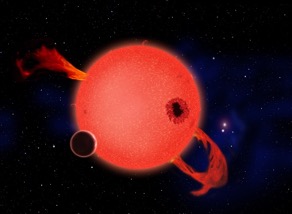 Astronomy Unit member receives €1.5 million European Research Council Grant to study exoplanet evolution
Astronomy Unit member receives €1.5 million European Research Council Grant to study exoplanet evolution
5 September 2023
Dr Ed Gillen, from Queen Mary's Astronomy Unit, has been awarded €1.5 million from the European Research Council to support a team to investigate how exoplanetary systems evolve into potentially habitable environments
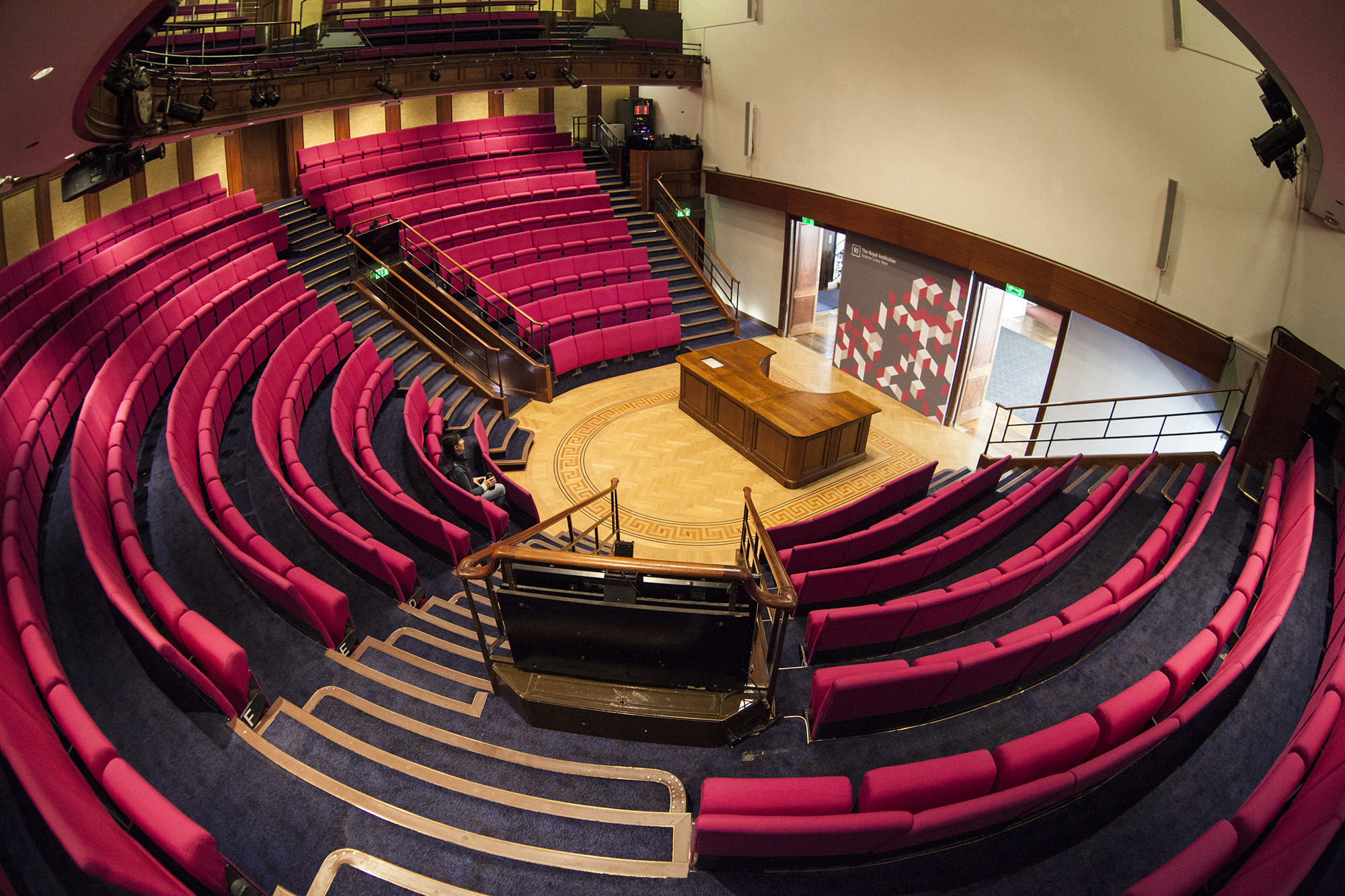 QMUL's Astronomy Unit members deliver a series of talks at the Royal Institution
QMUL's Astronomy Unit members deliver a series of talks at the Royal Institution
31 August 2023
Five academics from QMUL, including four from the Astronomy Unit, have delivered a series of talks at the Royal Institution, covering topics in Astronomy from stars, to gravitational waves and cosmology.
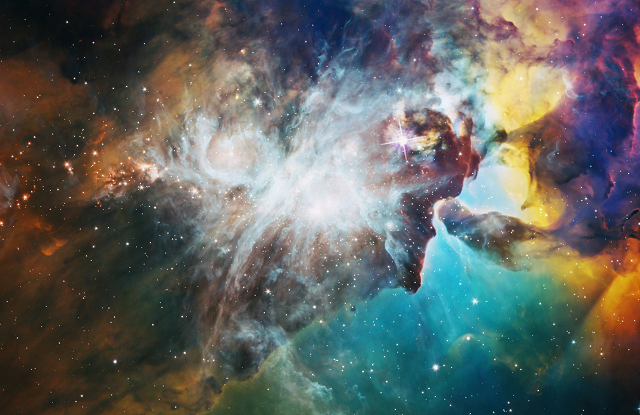 Queen Mary Astronomy Unit Part of New Leverhulme Grant for Astrobiology
Queen Mary Astronomy Unit Part of New Leverhulme Grant for Astrobiology
13 July 2023
Queen Mary's new inter-school astrobiology initiative has been awarded a prestigious Leverhulme Trust Research Project grant.
 A new Tatooine-like multi-planetary system identified
A new Tatooine-like multi-planetary system identified
13 June 2023
Researchers in QMUL’s Astronomy Unit were involved in the discovery of a new multi-planetary system orbiting two stars, only the second such system known to exist
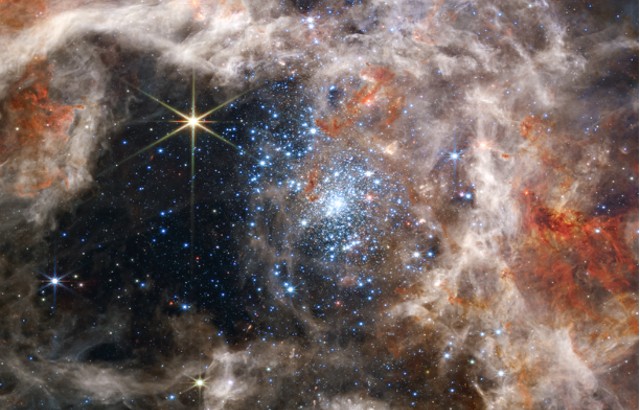 AU academic awarded €2m from European Research Council to investigate planet forming discs
AU academic awarded €2m from European Research Council to investigate planet forming discs
3 February 2023
Dr Thomas Haworth from QMUL's Astronomy Unit has been awarded a European Research Council (ERC) Consolidator Grant worth €2m to investigate how planet forming discs evolve in different environments.
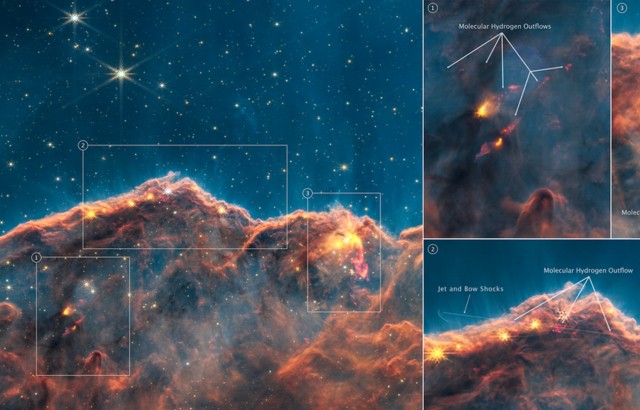 AU members, together with NASA and Edinburgh scientists, use James Webb Space Telescope data to unveil young stars in early stages of formation
AU members, together with NASA and Edinburgh scientists, use James Webb Space Telescope data to unveil young stars in early stages of formation
15 December 2022
James Webb Space Telescope infrared capabilities pierce through dust clouds to make rare find.
 QMUL Astronomy Unit member Dr Andrea Larosa awarded the AGU Fred L. Scarf Award
QMUL Astronomy Unit member Dr Andrea Larosa awarded the AGU Fred L. Scarf Award
6 September 2022
Dr Andrea Larosa has been awarded the AGU Fred L. Scarf Award for his work on magnetic switchbacks and Langmuir waves with the NASA Parker Solar Probe mission
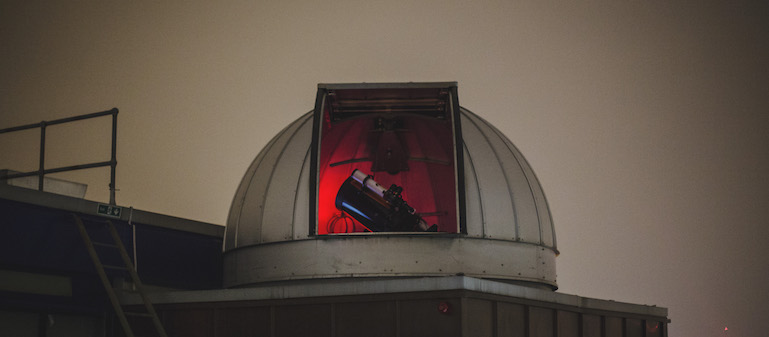 QMUL Astronomical Observatory undergoes significant upgrade
QMUL Astronomical Observatory undergoes significant upgrade
11 August 2022
The QMUL Astronomical Observatory is undergoing a major upgrade to allow full remote operation of the dome and telescopes. This will greatly expand the range of projects that students will be able to carry out as part of their final-year projects.
Dr Caroline Roney and Dr Christopher Chen are among 84 promising leaders awarded fellowships totalling £98 million.
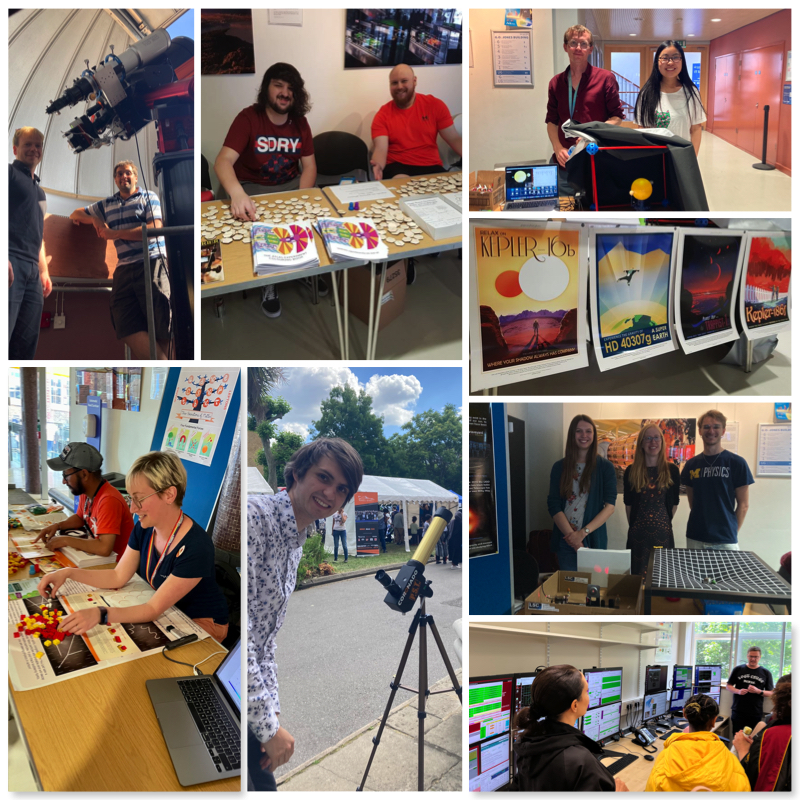 Physics and Astronomy at the Festival of Communities
Physics and Astronomy at the Festival of Communities
12 June 2022
Members of the Department of Physics and Astronomy took part in QMUL's Festival of Communities to showcase our work to the public.
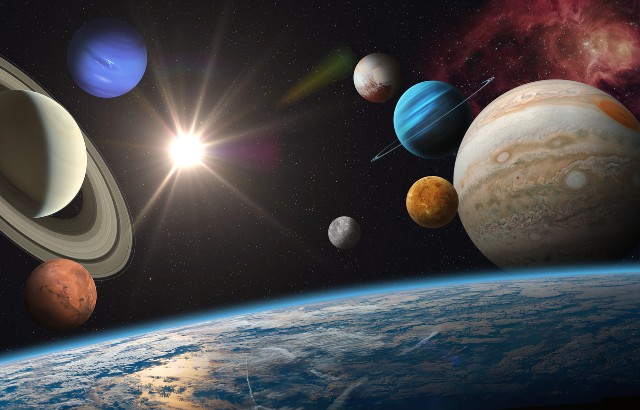 Astronomy Unit academic awarded ERC grant to investigate how planets are formed from dust
Astronomy Unit academic awarded ERC grant to investigate how planets are formed from dust
27 April 2022
Dr Sijme-Jan Paardekooper has been awarded € 2,314,680 from the European Research Council (ERC) to study how dust distribution impacts the formation of planets.
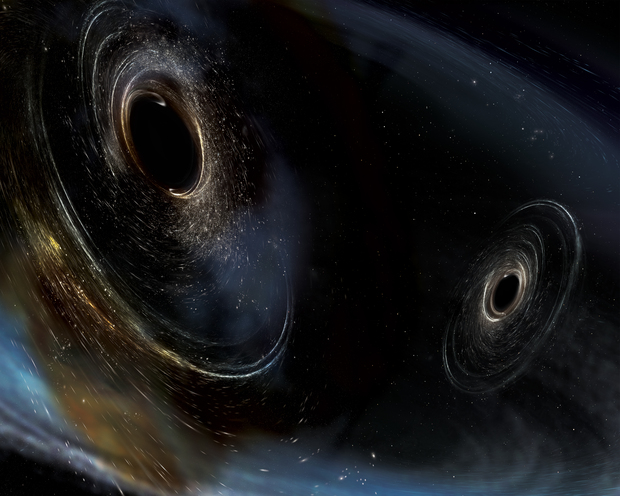 AU researchers join the LIGO Scientific Collaboration
AU researchers join the LIGO Scientific Collaboration
24 January 2022
A team of researchers from the QMUL Cosmology & Relativity group have been admitted to the LIGO Scientific Collaboration, the global organisation leading the detection and interpretation of gravitational wave events.
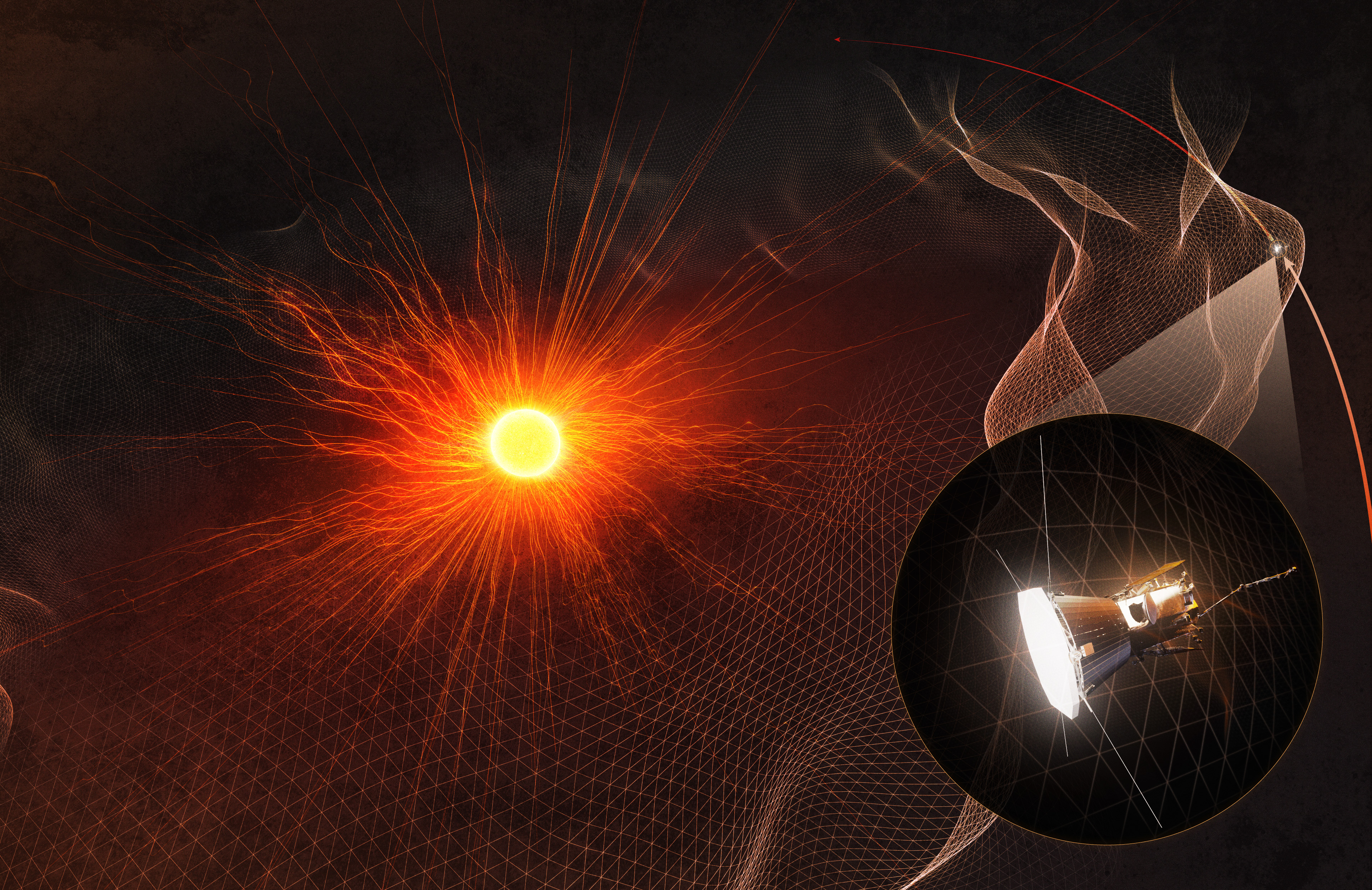 Parker Solar Probe enters the magnetic atmosphere of the Sun
Parker Solar Probe enters the magnetic atmosphere of the Sun
14 December 2021
The NASA Parker Solar Probe mission has become the first spacecraft to enter the solar corona – the magnetically dominated atmosphere of the Sun. Researchers from the AU played a key role in the research confirming this historic event in space exploration.
 Dr Christopher Chen awarded medal for outstanding contributions to space science
Dr Christopher Chen awarded medal for outstanding contributions to space science
15 September 2021
Dr Christopher Chen from Queen Mary University of London has won American Geophysical Union’s James B. Macelwane Medal for his significant contributions to the geophysical sciences as an early career scientist.
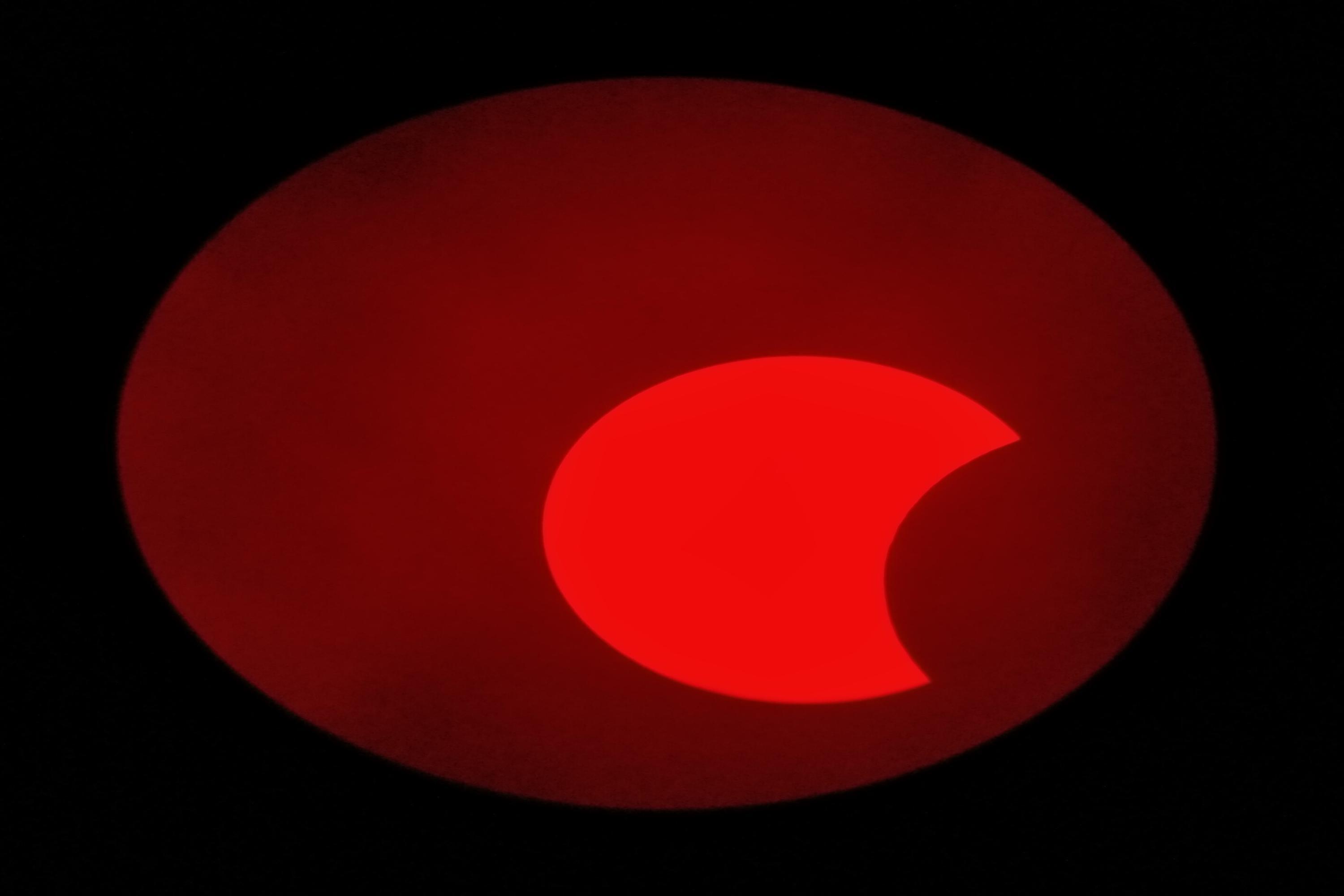 QMUL's Astronomical Observatory Captures Solar Eclipse
QMUL's Astronomical Observatory Captures Solar Eclipse
11 June 2021
Members of the Astronomy Unit gathered at the School of Physics and Astronomy's Observatory to witness the recent partial solar eclipse.
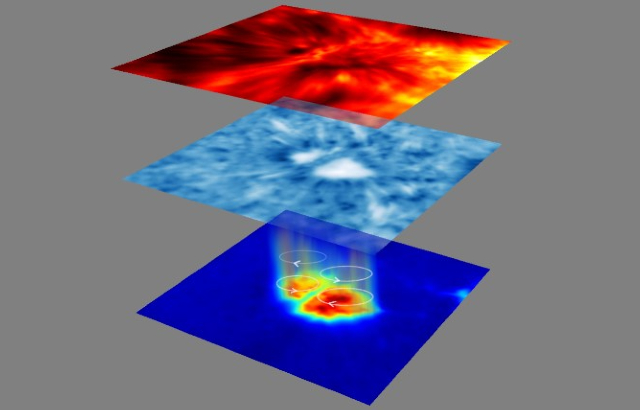 Important plasma waves in the solar atmosphere identified by AU researchers
Important plasma waves in the solar atmosphere identified by AU researchers
11 May 2021
AU researchers have confirmed the existence of magnetic plasma waves, known as Alfvén waves, in the Sun’s photosphere.
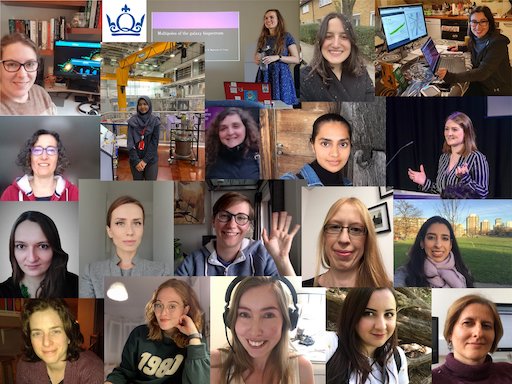 QMUL's Astronomy Unit Celebrates International Women's Day
QMUL's Astronomy Unit Celebrates International Women's Day
8 March 2021
On Monday 8th March 2021, QMUL's Astronomy Unit celebrated International Women's Day by showcasing current staff, alumni, and eminent astrophysicists. A selection of tweets celebrating this day can be found below.
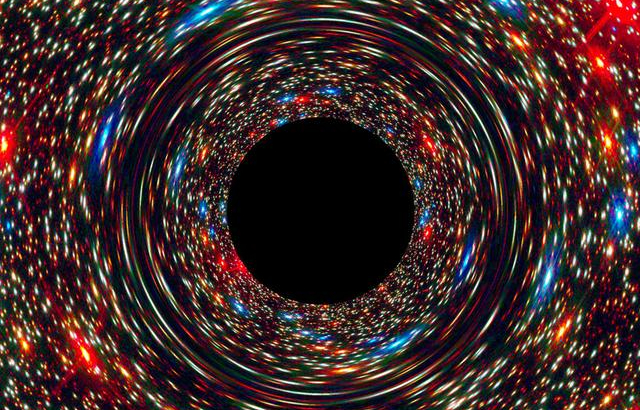 Research led by the AU finds black holes could reach ‘stupendously large’ sizes
Research led by the AU finds black holes could reach ‘stupendously large’ sizes
20 January 2021
A recent study suggests the possible existence of ‘stupendously large black holes’ or SLABS, even larger than the supermassive black holes already observed in the centres of galaxies.
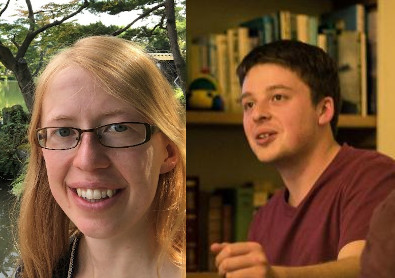 AU researchers win prestigious European Research Council grants
AU researchers win prestigious European Research Council grants
14 September 2020
Two cosmologists in the Astronomy Unit in the School of Physics and Astronomy have been awarded prestigious Starting Grants from the European Research Council.
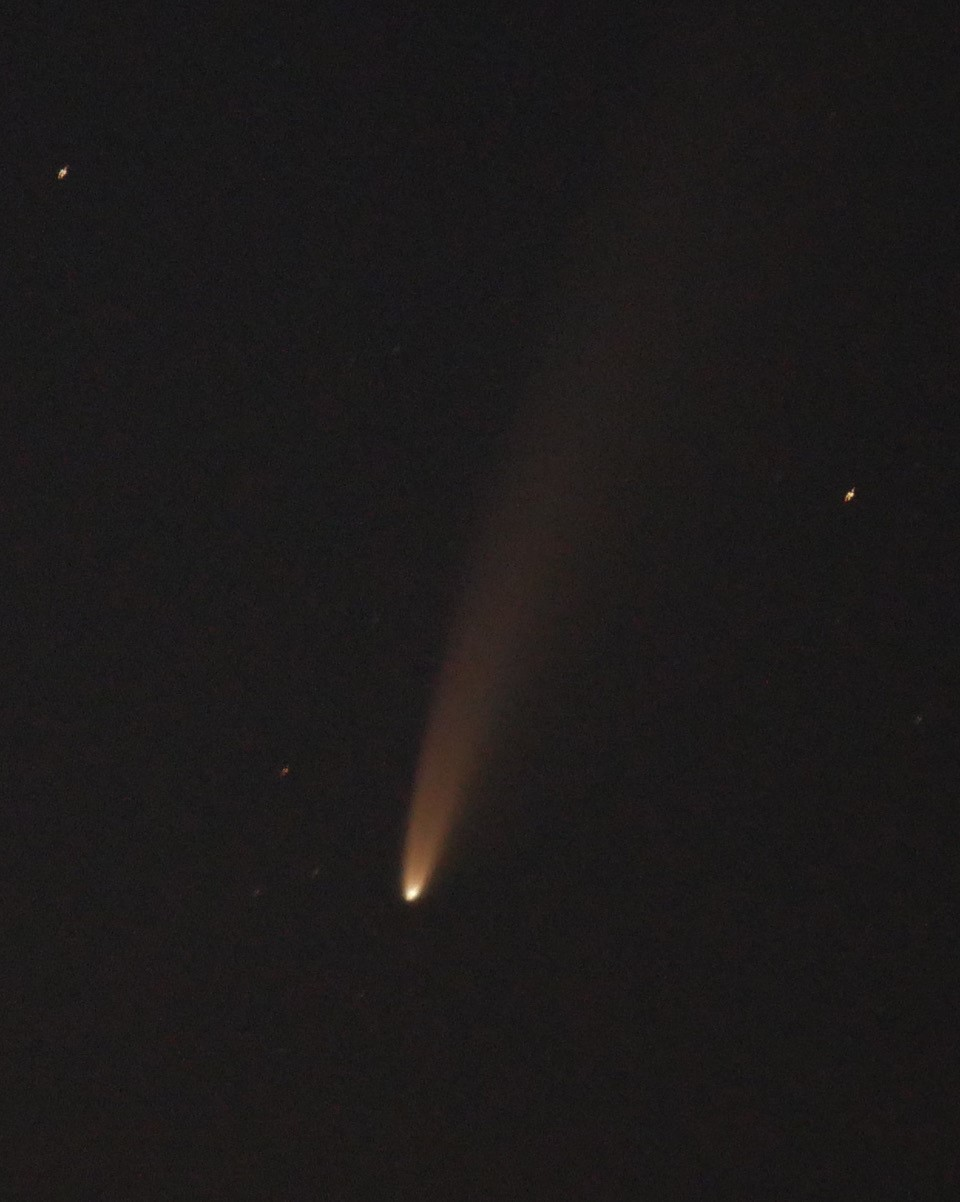 Rare naked-eye comet NEOWISE lights up the sky
Rare naked-eye comet NEOWISE lights up the sky
19 July 2020
A recently-discovered comet has become visible to the naked eye during twilight. QMUL astronomer Thomas Haworth has been making the most of this rare opportunity by taking some photos!
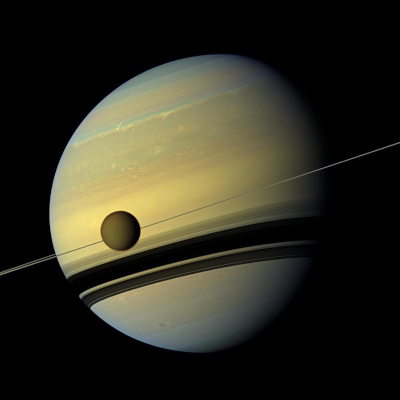 Saturn's Moon Titan Drifting Away Faster Than Previously Thought
Saturn's Moon Titan Drifting Away Faster Than Previously Thought
8 June 2020
Research involving scientists from Queen Mary University of London has shown that the moons of Saturn are moving outwards faster than first estimated, providing new insights into how the Saturn system formed.
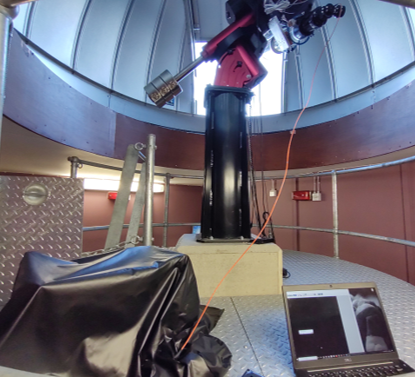 Innovative spectrometer sees first light (and breaks a record)
Innovative spectrometer sees first light (and breaks a record)
1 June 2020
Astronomers at QMUL have developed an extremely high-resolution spectrometer for exoplanet studies that is many times smaller, lighter, and cheaper than current alternatives. Its first-light spectrum is thought to be the highest resolution ever taken from the UK!
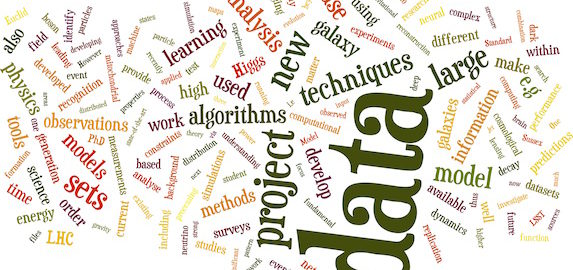 Queen Mary astronomer makes the connection to Data Science
Queen Mary astronomer makes the connection to Data Science
11 May 2020
The QMUL School of Physics and Astronomy is a member of the Data Intensive Science Centre in the South East Physics Network (DISCnet). DISCnet is an STFC funded Centre for Doctoral Training, aimed at training a new generation scientists in data science. Paula Soares, a cosmology PhD student in the Astronomy Unit being supervised by Dr Alkistis Pourtsidou, is part of DISCnet and undertook a 3-month-long data science internship in the summer of 2019.
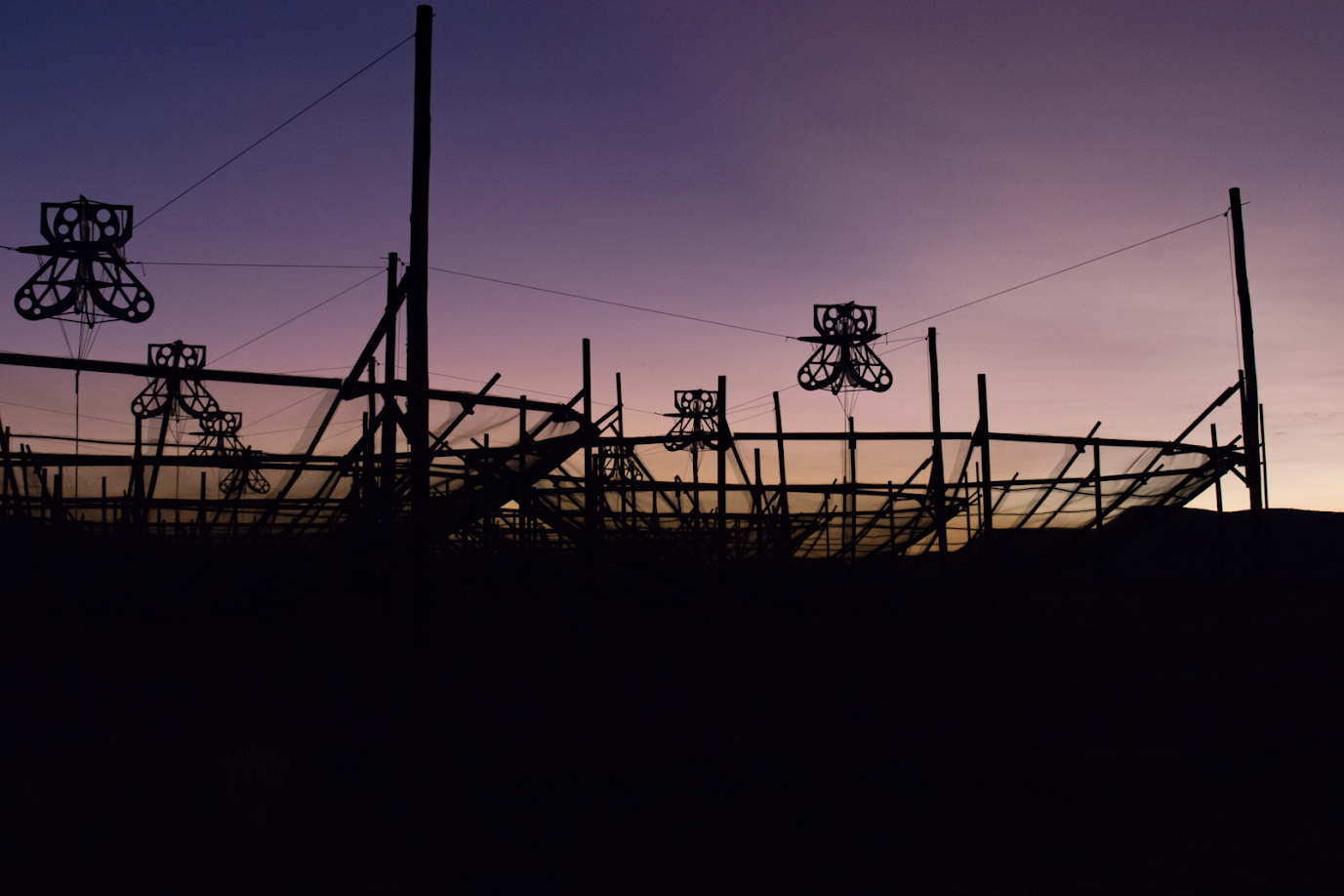 Queen Mary astronomers celebrate funding success
Queen Mary astronomers celebrate funding success
30 April 2020
Astronomers at QMUL are celebrating a bumper research funding award from the UK Government's Science and Technology Facilities Council (STFC).
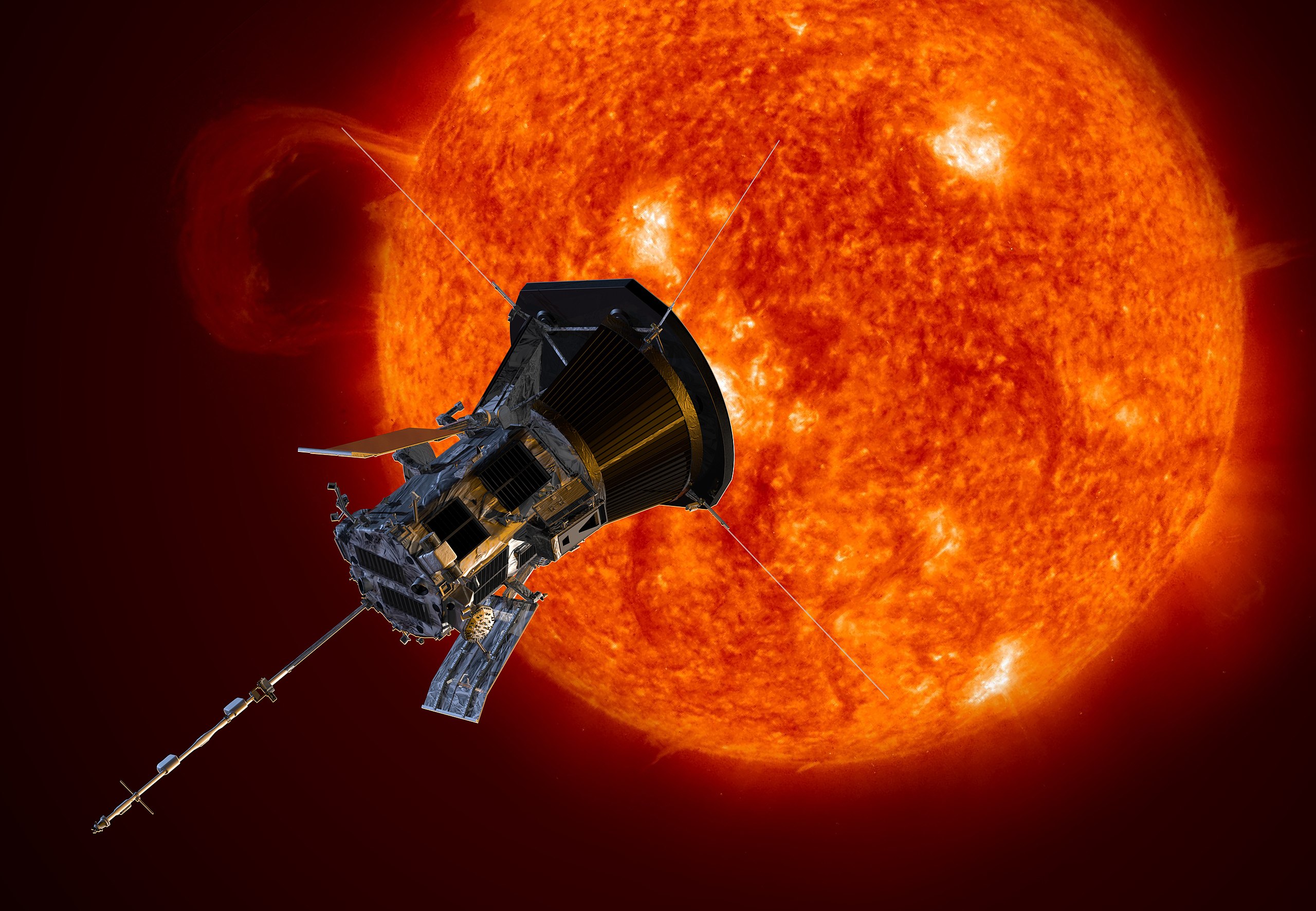 Astronomy Unit hosts the Parker Solar Probe FIELDS team meeting
Astronomy Unit hosts the Parker Solar Probe FIELDS team meeting
16 March 2020
The QMUL Astronomy Unit hosts a meeting for the team that designed and operates the FIELDS suite of instruments onbaord NASA's Parker Solar Probe spacecraft.
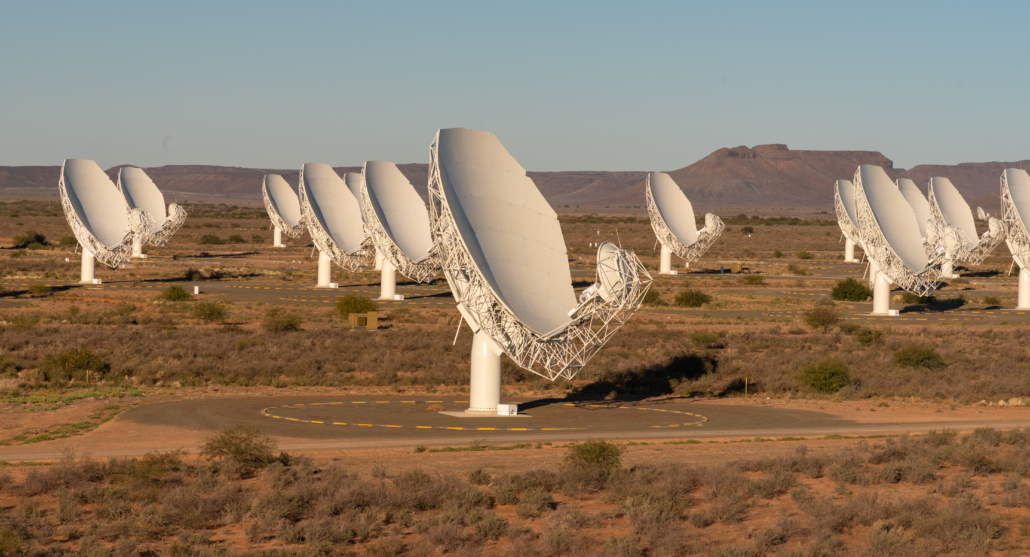 Astronomy Unit researchers help usher in a new era of radio cosmology
Astronomy Unit researchers help usher in a new era of radio cosmology
6 March 2020
Researchers at Queen Mary are leading the way as a new generation of cosmic surveys with radio telescopes begin.
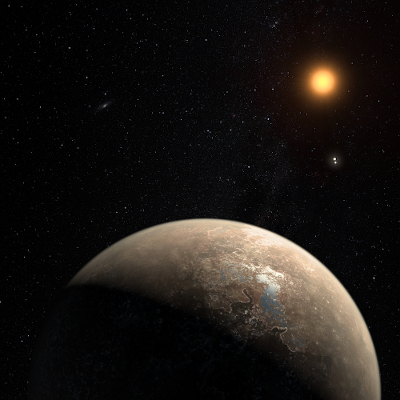 Updates from the Planets group at Queen Mary
Updates from the Planets group at Queen Mary
5 March 2020
The Planets group at Queen Mary has had another busy year! Here are some recent highlights.
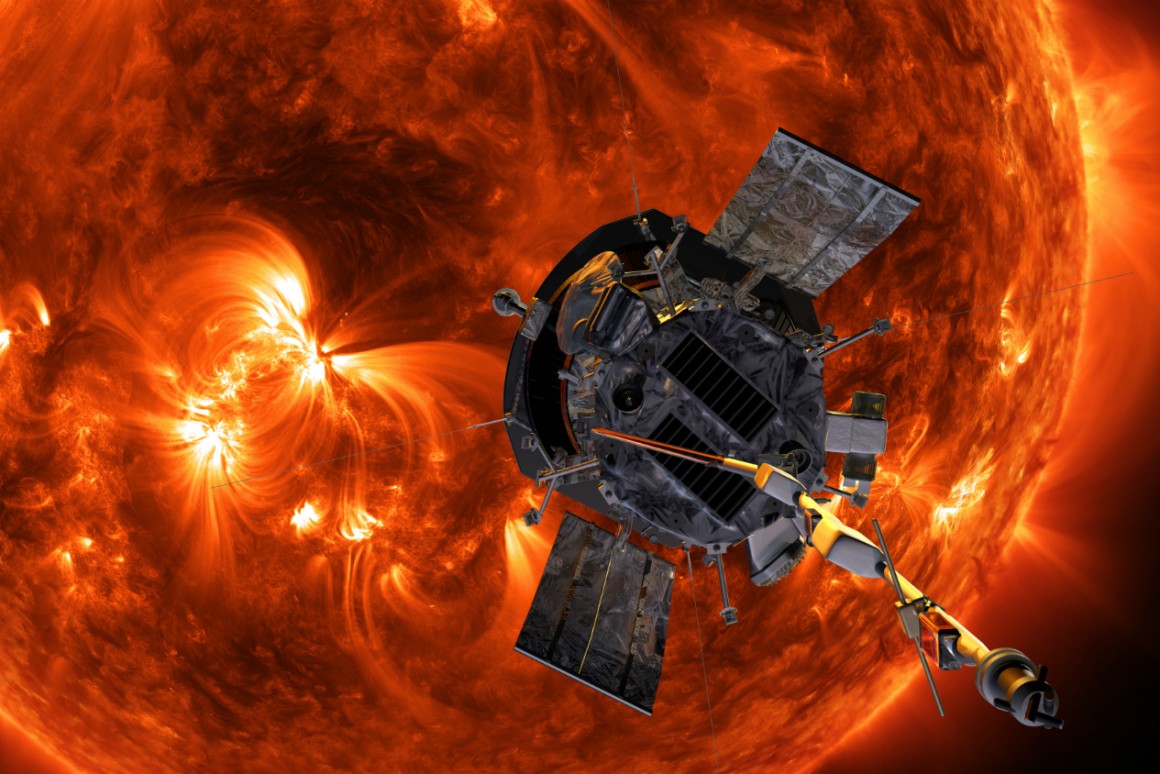 Researchers uncover intense chaotic motions of the solar wind
Researchers uncover intense chaotic motions of the solar wind
3 February 2020
New research from Queen Mary University of London has observed the chaotic behaviour of the solar wind at distances closer to the Sun than ever before.
 Queen Mary researcher awarded prestigious Eccellenza Professorial Fellowship
Queen Mary researcher awarded prestigious Eccellenza Professorial Fellowship
6 January 2020
Dr Julian Adamek, a senior postdoctoral researcher in the Astronomy Unit, has been awarded a prestigious Eccellenza Professorial Fellowship by the Swiss National Science Foundation.
 Closest-ever approach to the Sun reveals dynamic origins of solar wind
Closest-ever approach to the Sun reveals dynamic origins of solar wind
5 December 2019
Queen Mary researchers were part of an international team interpreting ground-breaking results from the Parker Solar Probespacecraft, which has flown closer to the Sun than ever before.

27 May 2019
Members of the QMUL Astronomy Unit attended the Les Houches Physics School on "The multiple approaches to plasma physics from laboratory to astrophysics" and PhD student Alice Giroul won first prize for best poster presentation at the school.
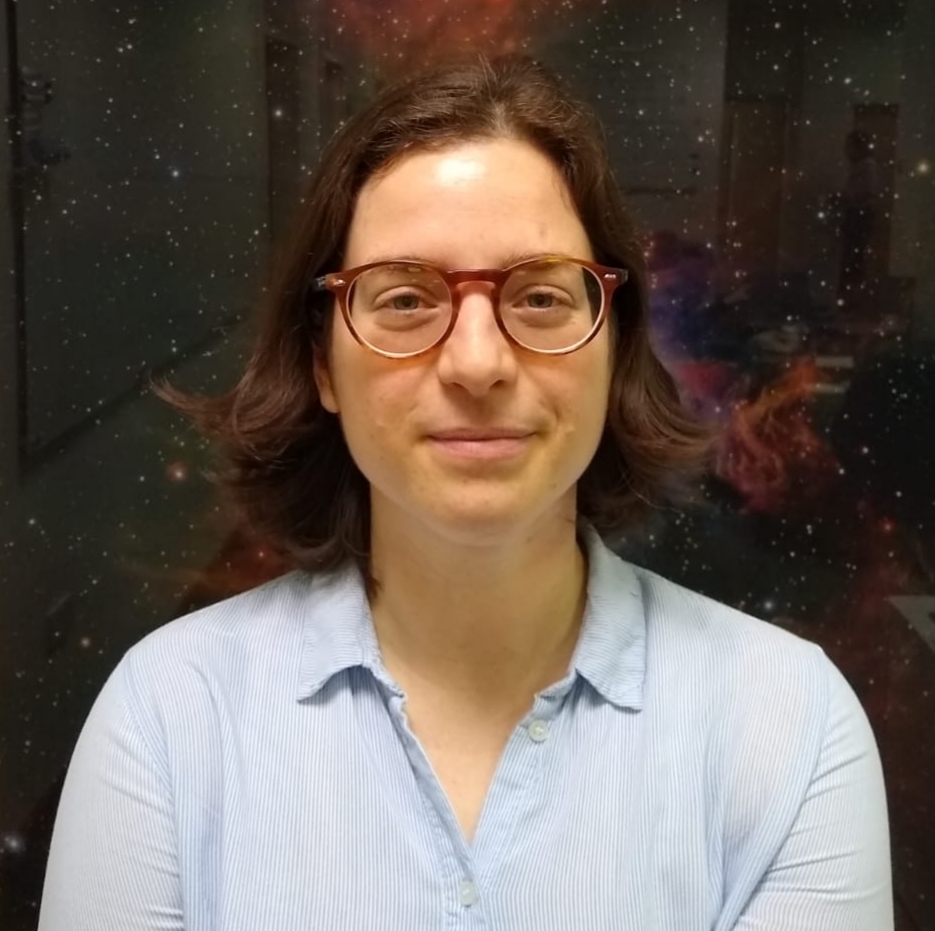 Dr Alkistis Pourtsidou to explore the universe as a Future Leaders Fellow
Dr Alkistis Pourtsidou to explore the universe as a Future Leaders Fellow
9 May 2019
A Queen Mary cosmologist has been announced as a Future Leaders Fellow as part of a new government initiative to give leading researchers an opportunity to deliver global impact.
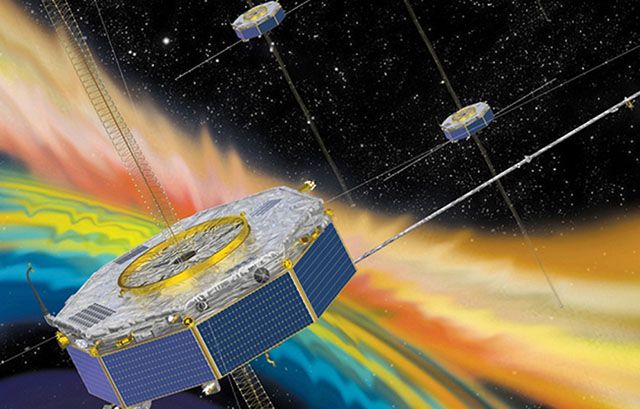 Spacecraft measurements reveal mechanism of solar wind heating
Spacecraft measurements reveal mechanism of solar wind heating
14 February 2019
Queen Mary University of London has led a study which describes the first direct measurement of how energy is transferred from the chaotic electromagnetic fields in space to the particles that make up the solar wind, leading to the heating of interplanetary space.
 Astronomers find a super-Earth at Barnard's star
Astronomers find a super-Earth at Barnard's star
15 November 2018
Astronomers from the School of Physics and Astronomy are members of an international team that has found a planet in orbit around the second-closest star to the Sun, known as Barnard's star.
 Queen Mary astronomer to play key role in ESA’s Ariel exoplanet mission
Queen Mary astronomer to play key role in ESA’s Ariel exoplanet mission
27 March 2018
Dr James Cho of the School of Physics and Astronomy is a member of the UK-led international team that will develop the European Space Agency’s Ariel mission, dedicated to observing and characterising planets in orbit around other stars (exoplanets).
 QMUL Astronomer helps to find Dormant Black Hole
QMUL Astronomer helps to find Dormant Black Hole
17 January 2018
Queen Mary astronomer Dr Guillem Anglada Escudé is a member of an international team of astronomers who have used a novel method to find a black hole hiding in a nearby group of stars.
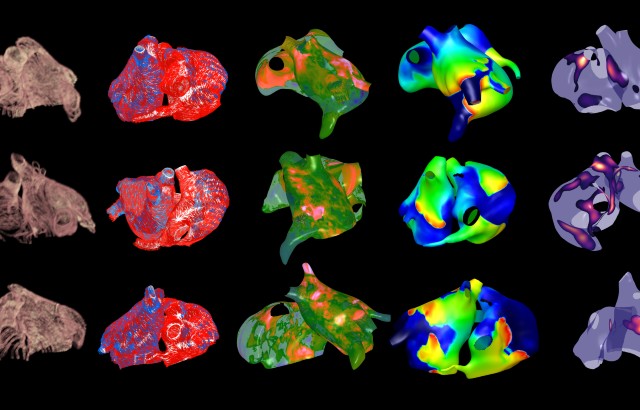 Queen Mary Science and Engineering researchers awarded UKRI Future Leaders Fellowships to tackle heart irregular heart rhythms and explore turbulence in space plasma
Queen Mary Science and Engineering researchers awarded UKRI Future Leaders Fellowships to tackle heart irregular heart rhythms and explore turbulence in space plasma